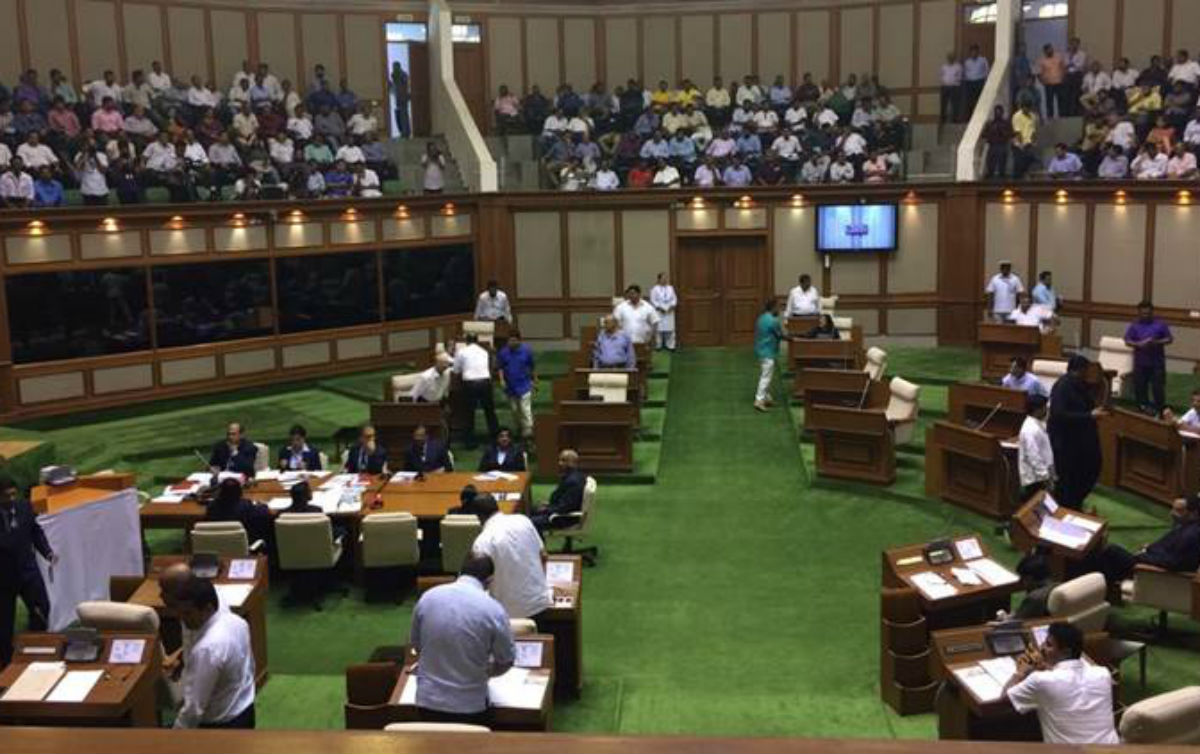Goa is under the Portuguese civil Code despite its Independence from Portuguese in the year 1961. The Goa Civil Code, also called as the Goa Family Law is largely based on the Portuguese Civil Code (Código Civil Portugués) of 1867, which was introduced in Goa in 1870. Portuguese left Goa in 1961, but the civil code was retained, and it is this single code that governs all Goans irrespective of religion, ethnicity or linguistic affiliation.
On Friday the Supreme Court ruled that the rights of succession and inheritance of a Goan domicile shall be governed by the Portuguese Civil Code, 1867, which is applicable to the State of Goa, instead of the Indian Succession Act of 1925.
The bench comprising of Justice Deepak Gupta and Justice Aniruddha Bose has held that rights of succession and inheritance even in the case of properties of a Goan citizen situated outside Goa, in any state in India will also be governed by the Portuguese Civil Code.

The property of one Joaquim Mariano Pereira bought by him in Mumbai (then Bombay) in the year 1955 came under dispute when he bequeathed the same to his youngest daughter Maria Luiza Valentina Pereira in May 1957 while leaving a sum of Rs. 3000 each to his other two daughters.
The youngest daughter objected to the inventory of properties drawn up in 1981, claiming that the Bombay property cannot be governed by the inventory proceedings.
Senior Advocate Devadatt Kamat, on behalf of the appellant, argued that the Apex Court will have to apply the Portuguese Law which is applicable to the domiciles of Goa, using the principles of private international law. He further added that since citizens of Goa are governed by foreign law, the Apex Court would have to apply foreign law.
Answering the issue whether the Portuguese Civil Code can be said to be a foreign law and the principles of Private International Law are applicable, the bench said that the Portuguese Civil Code continues to apply in Goa, by an act of the Parliament in India and therefore the Portuguese law, although being of foreign origin, became a part of the Indian laws and in substance is an Indian Law. The bench further stated that Goa now being a territory of India and all its citizens being Indian citizens, the Code is now an Indian Law and no principles of Private International Law are applicable in this case.
The Civil court held that a person cannot bequeath of all of his properties by way of will as it has two provisions on disposal of the property. One provision is on disposal of half of the property by way of will or gift and the second provision is for lineal descendants or ascendants, for the other half of the property.

The code provides for the division of the estate of every person into two parts, the second part being for inheritance by legitimate heirs.
The counsel for the respondents insisted that the Portuguese Civil Code would apply only in the territory of Goa and would have no extraterritorial application over immovable properties situated outside Goa and insisted that the property in Bombay will be governed by the Indian Succession Act.
The court then went on to discuss the Uniform Civil Code applicable in Goa noting that personal laws will not apply in Goa and used this context for deciding the status of the property of JMP situated in Bombay. The bench held that the code applied to it and that all properties whether within Goa or outside Goa, must be governed by the Civil Code of Goa.
Much as the code being of Portuguese origin, it is an Indian law and all such properties of a person whose inheritance is under dispute have to be calculated and considered as one big combined unit and then the rules of succession will apply.
Another issue raised up was whether the property of a Goa domiciled outside the territory of Goa would be governed by the Code or by Indian Succession Act or even by personal laws as applicable in the rest of the country such as the Muslim Personal Law (Shariat) Application Ac, 1937 or the Hindu Succession Act 1956. The bench stated that the Portuguese Civil Code being a special code will be applicable to all Goan domiciles in respect to all properties whether they are situated in India whether within Goa or outside Goa and the Indian Succession Act or the laws of succession would not be applicable to such Goan domiciles.
The Bench then concluded that after the liberation of Goa, the Parliament by adopting the Portuguese Civil Code accepted that Goan domiciles were to be governed by that law in matters covered under the code. It added that the laws which were applicable than would now apply with full force.
Source: Live Law | Heraldo































1 thought on “Portuguese Civil Code applies to the Properties of Goans anywhere in India, rules Supreme Court”
Sou filha de pai goes e conseguiram que os filhos fossem despejados da heranca….vamos ver o que decide o tribunal